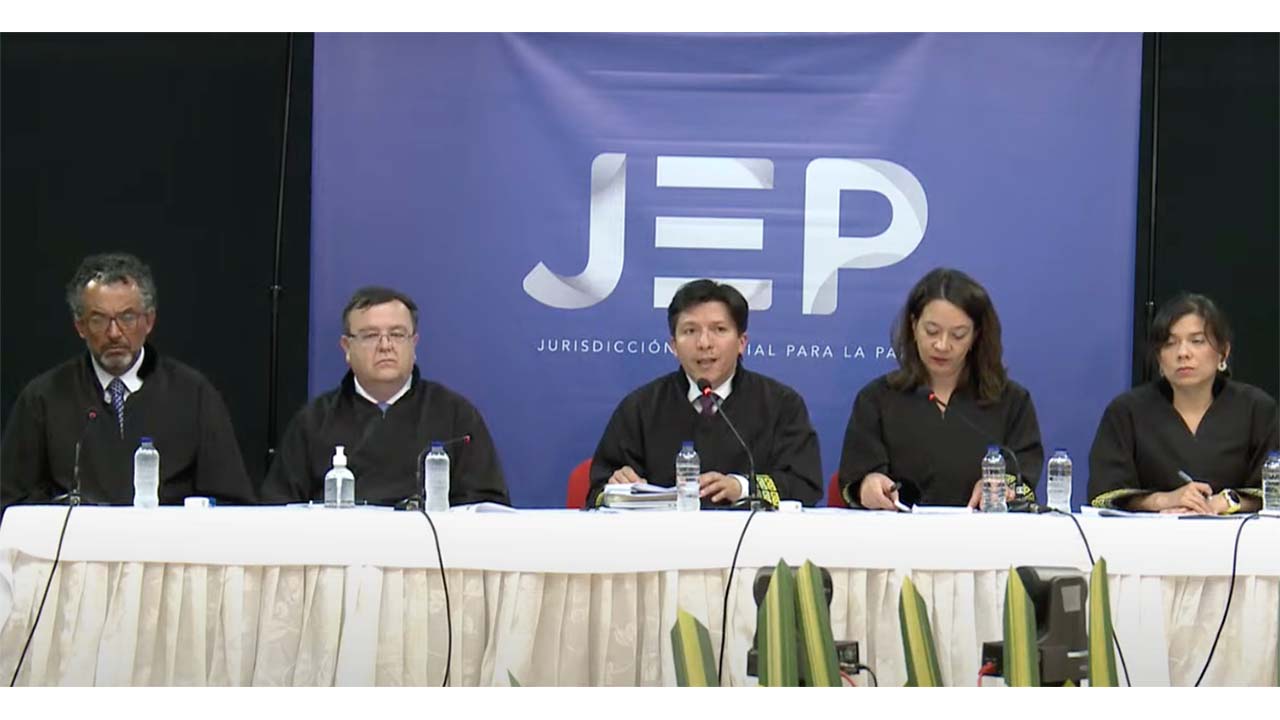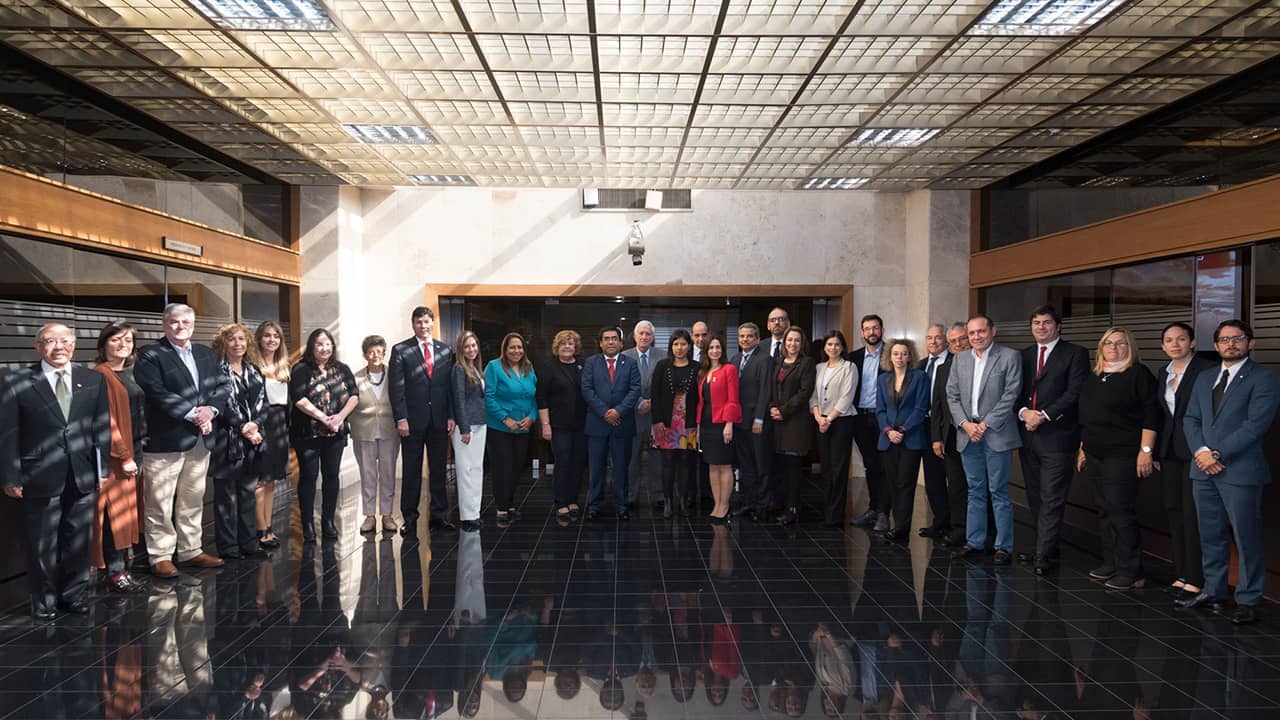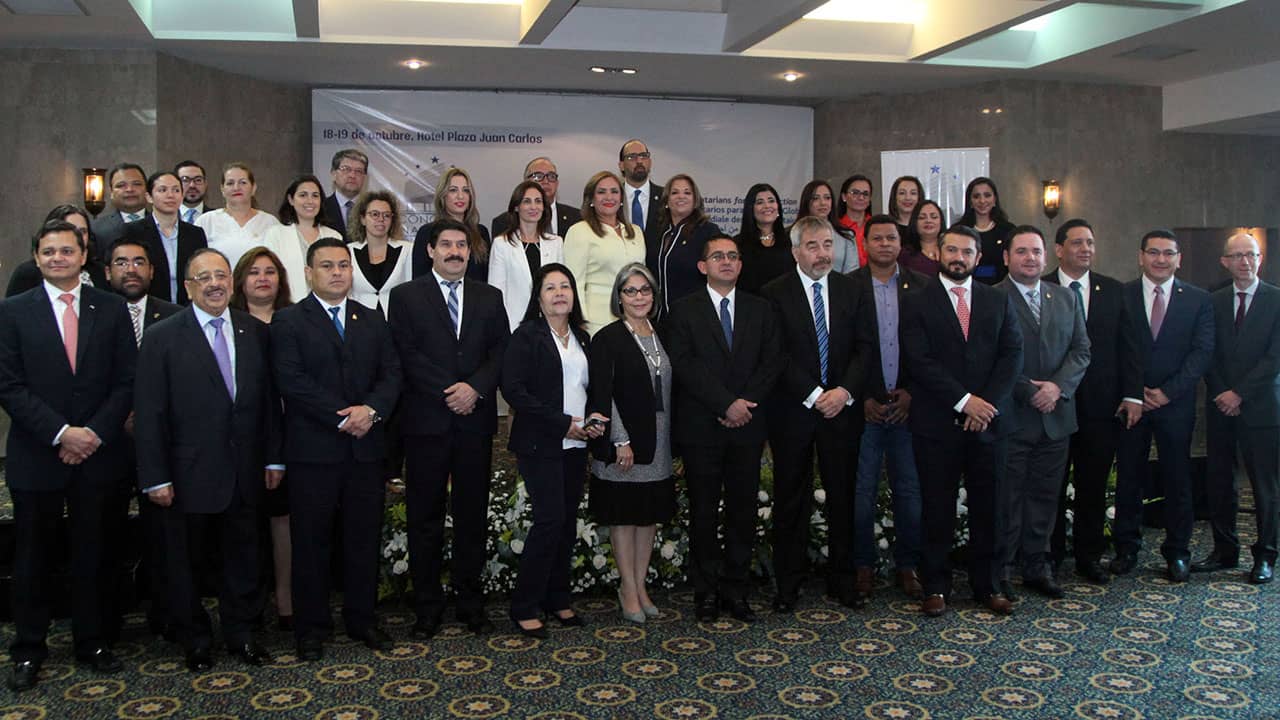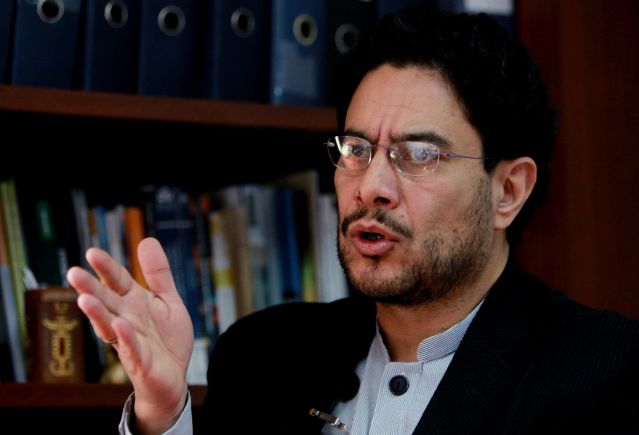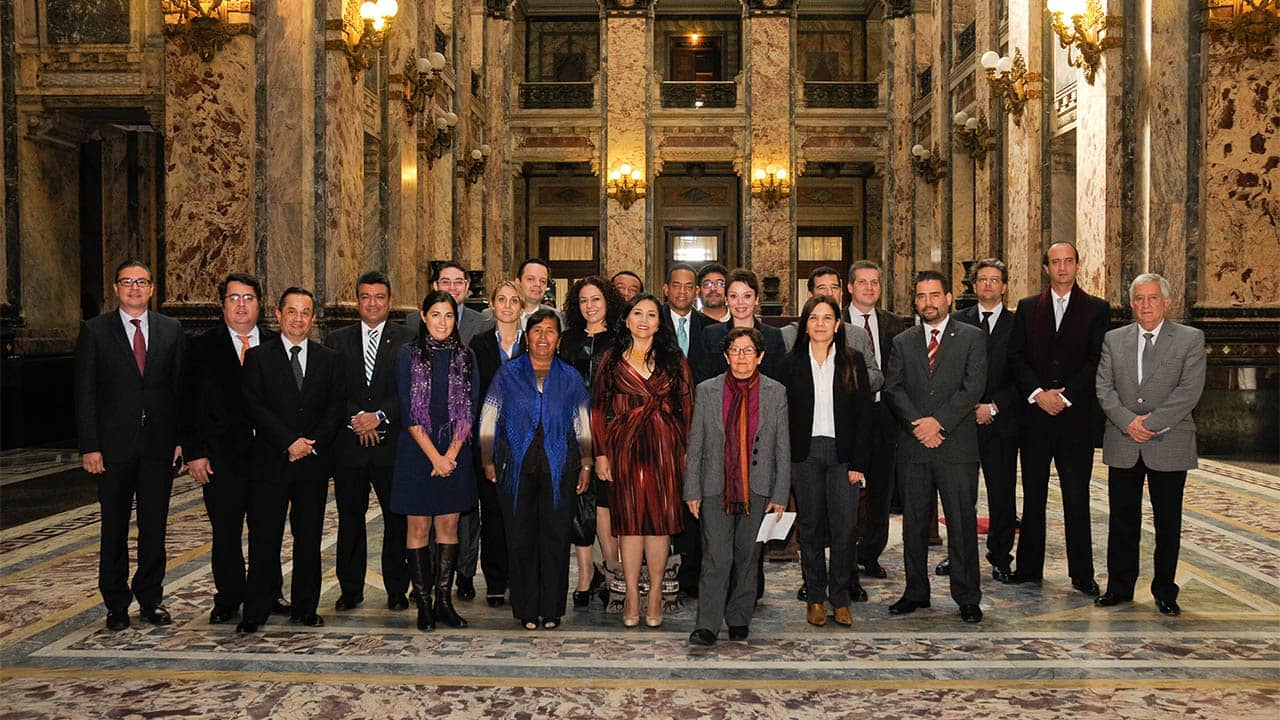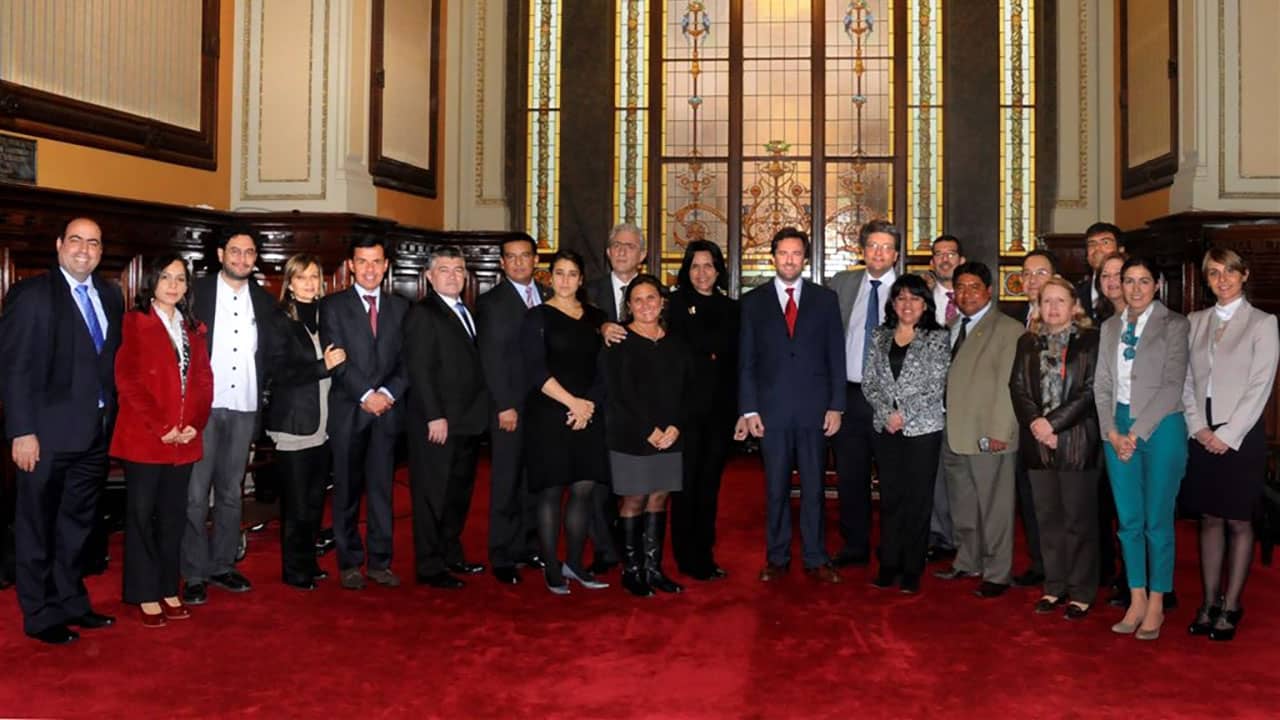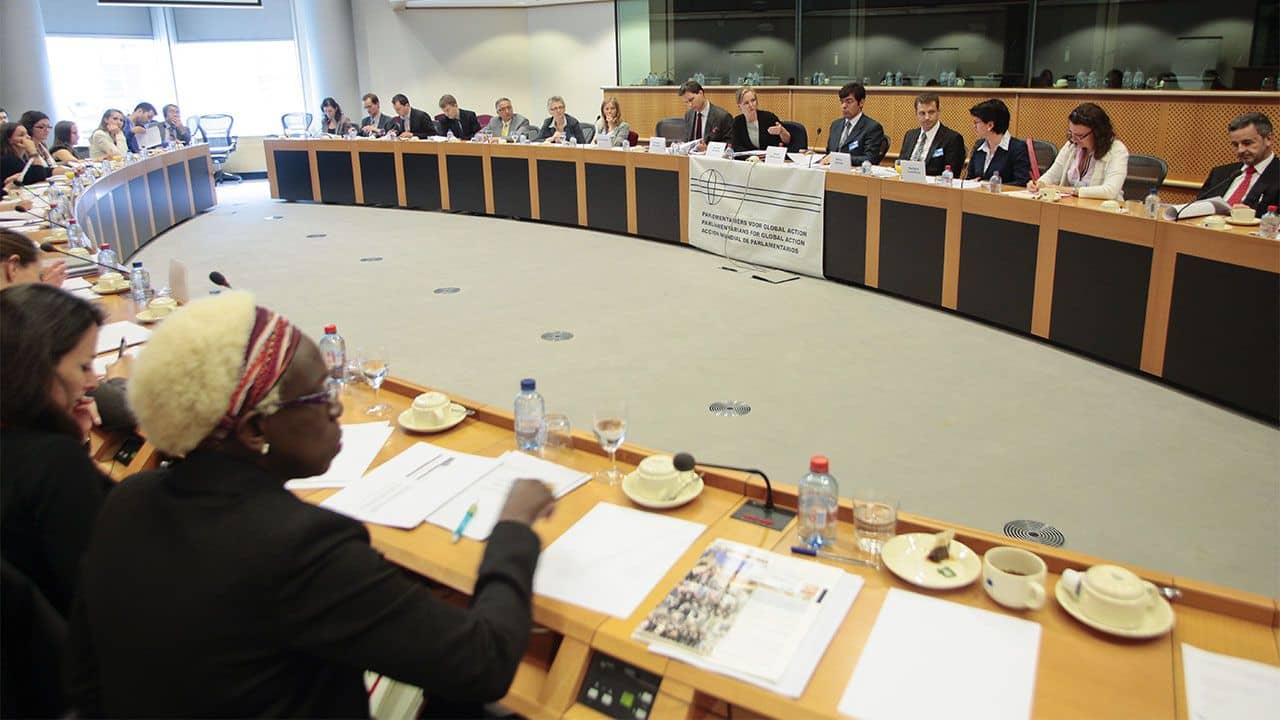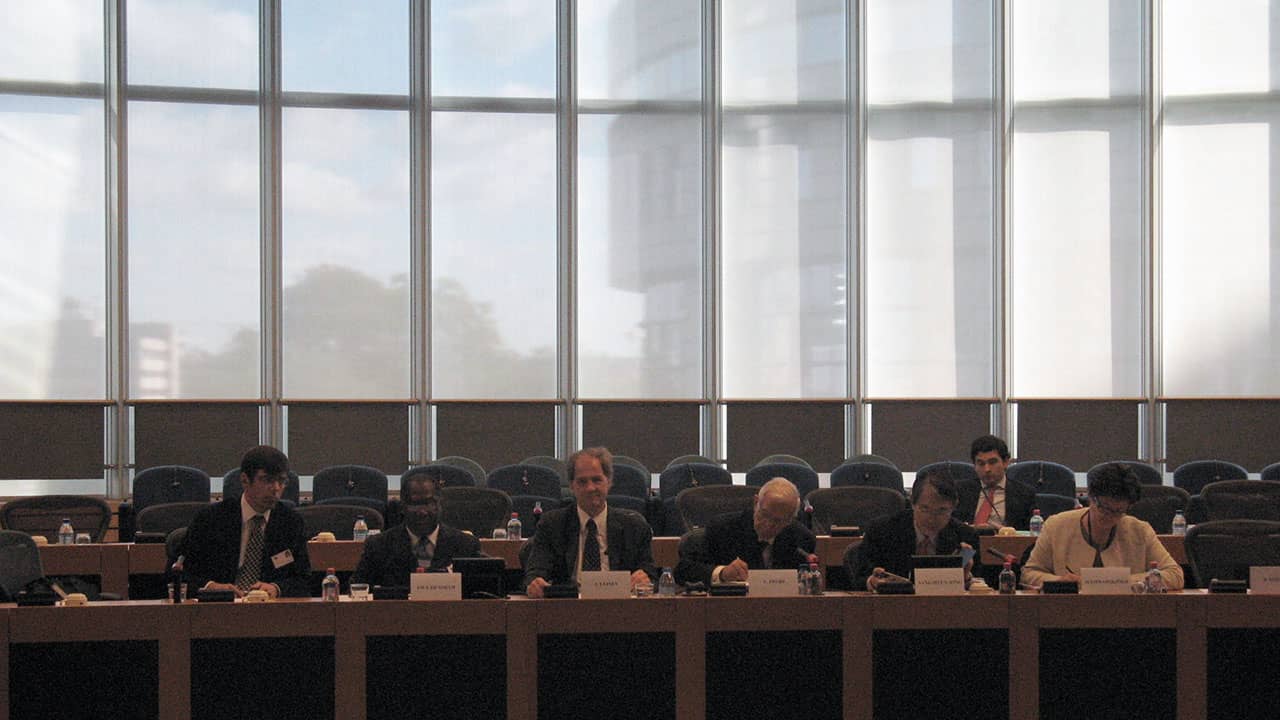On 18 June 2014, the Congress of Colombia passed a law to guarantee access to justice for victims of sexual violence, especially in the context of the armed conflict (law available in Spanish). Colombian PGA Members Rep. Ángela María Robledo and Sen. Iván Cepeda Castro were key authors of the project (article in Spanish). Their leadership and commitment to gender justice were crucial in bringing about the enactment of this legislation.
In conformity with the provisions of the Rome Statute, the law provides that widespread or systematic acts of sexual violence against civilians may constitute crimes against humanity. This also means that they are imprescriptible. As explained by Sen. Cepeda, “this law substantially broadens the definition of sexual violence in situations of armed conflicts.” Forced pregnancies, sterilization, and forced nudity are some of the acts that can now be prosecuted under this law. PGA has been instrumental in achieving this critical development, actively working with its members since its 35th Annual Forum held in the Congress of Colombia. A victim-centered approach was given prominence, and sexual violence was placed at the center of the debates.
Law 1719 (2014), drafted by PGA Members Rep. Robledo and Sen. Cepeda in 2012, has incorporated provisions that address many of the issues MPs highlighted during the Annual Forum held in December 2013. For example, the law’s first article prioritizes women, girls, boys, and youth victims following Dr. Ruth Wijdenbosch’s concerns during the Forum: “Women and girls are the most vulnerable parts within society and suffer conflict-related sexual violence.” The adoption of this comprehensive Law coincides with the international momentum created at the London Summit to end sexual violence in conflict held earlier in June and whose goal was to launch an International Protocol on the documentation and investigation of sexual violence in conflict.
After more than five decades of conflict, the Government of former President Juan Manual Santos and the country’s largest rebel group, Las FARC-EP (Fuerzas Armadas Revolucionarias de Colombia - Ejército del Pueblo), signed a Peace Agreement to End the Armed Conflict and Build a Stable and Lasting Peace. The Peace Agreement set out the basis for a new chapter in the country’s effort to ensure accountability for those bearing the greatest responsibility for the crimes committed within the context of the internal conflict. Toward that goal, the Special Jurisdiction for Peace (SJP) - one of the main components of the Comprehensive System of Truth, Justice, Reparation, and Non-Repetition (SIVJRNR) - was established as the transitional tribunal with jurisdiction over severe human rights and international humanitarian law violations committed before the signing of the Peace Agreement. Though no convictions have been issued to date, the SJP has opened seven macro cases involving the most serious violations committed during the armed conflict, issued significant indictments against FARC and military members, and taken critical steps to protect and repair victims.
Moreover, the recently elected Prosecutor of the ICC, Mr. Karim Kahn - given the national efforts to carry out genuine investigations and prosecutions - announced on 28 October 2021 the closing of the Preliminary Examination in Colombia after 17 years. In such a context, and despite the concerns raised by this decision given the Government’s constant attacks on the SJP and the Peace Agreement, the Office of the Prosecutor signed a Cooperation Agreement with the Government setting out significant compromises - among them - respecting the SJP’s mandate and jurisdiction. Several PGA members in Colombia expressed their views on this critical decision.
PGA takes special pride in its continued support to initiatives taken by its Members in Colombia and congratulates them for adopting progressive laws that contribute to creating a Rules-Based International Order for a more equitable, safe, and democratic world.
| Signature, Ratification of/Accession to the Rome Statute of the ICC | |
|---|---|
| Signature Date: | 10 December 1998 |
| Ratification Date: | 5 August 2002 |
| Amendments to the Rome Statute | |
|---|---|
| Ratification of the Kampala Amendment to Article 8 of the Rome Statute on war crimes [poison and expanding bullets in NIAC] (2010): | No |
| Ratification of the Kampala Amendment to the Rome Statute on the crime of aggression reflected in Article 8 bis (2010): | No |
| Ratification of the Amendment to Article 124 of the Rome Statute (2015): | No |
| Ratification of the Amendment to Article 8 of the Rome Statute on war crimes [biological weapons] (2017): | No |
| Ratification of the Amendment to Article 8 of the Rome Statute on war crimes [blinding laser weapons] (2017): | No |
| Ratification of the Amendment to Article 8 of the Rome Statute on war crimes [non-detectable fragments] (2017): | No |
| Ratification of the Amendments to Article 8 of the Rome Statute on war crimes [starvation as a war crime in NIAC] (2019): | No |
| Adoption of implementation legislation of the Rome Statute of the ICC | |
|---|---|
|
Colombia has partially implemented the substantial provisions of the Rome Statute via the Penal Code (Law 599 of 2000). The Code incorporates Genocide and most War Crimes; however, Crimes against humanity are not typified under Colombian laws. The Penal Code criminalizes several acts enunciated under art. 7 of the Rome Statute (e.g., murder, forced disappearance of persons, torture, rape, sexual slavery, forced prostitution, arbitrary detention, forced displacement, etc.). However, these cannot be considered crimes against humanity because they lack the element of context indispensable to predicate the existence of a crime against humanity (i.e., the requirement that they are committed in the context of a widespread and systematic attack against the civilian population).
|
|
| Cooperation Agreements | |
|---|---|
| Ratification of Agreement on Privileges and Immunities of the Court (APIC): | Yes, ratified on 15 April 2009 and entered into force on 15 May 2009. |
| Signature of Agreement of Enforcement Sentences with the ICC: | Yes, signed on 17 May 2011 and entered into force on 29 November 2021. |
| Signature of Agreement of Interim and Final Release with the ICC: | No |
| Signature of Bilateral Immunity Agreement with the USA: | Yes, signed at Bogotá on 17 September 2003 and entered into force on 17 September 2003. |


